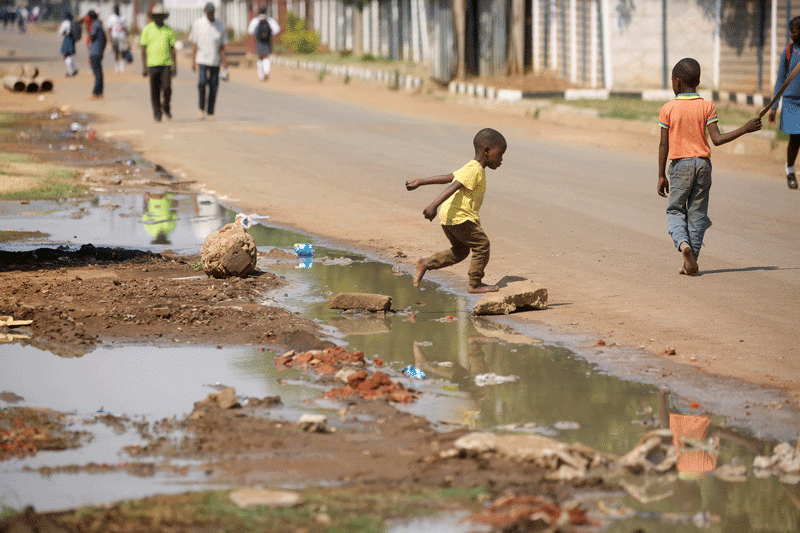
IN our NewsDay front page story yesterday, we reported that diarrhoea and malaria have killed more than 400 people in the past few months.
The diarrhoea outbreak has been attributed to poor sanitation and inadequate access to clean water, while failure to disinfect water sources and people failing to seek early medical treatment have been blamed for the increasing malaria incidents.
It is tragic that both diseases, from the reasons given, can easily be controlled and banished from our communities, but somehow they perennially keep on pestering us.
One of the key issues linked to these disease outbreaks which we keep shying away from is the fact that there are a sizeable number of people among us who do not believe in getting medical treatment because of religious doctrines or socio-cultural beliefs.
Sadly, however, these two diseases are communicable, meaning that that they are infectious and can easily be transmitted among communities which we believe is probably the main reason we keep on experiencing a disease burden of vaccine preventable diseases.
So long as there are some among us who refuse to be treated at hospitals and clinics, they are carriers of these diseases which are triggering outbreaks. In fact, while this should be regarded as a criminal act, government has been reluctant to make it mandatory for everyone to be treated for diseases which threaten the nation.
It defeats the whole purpose if, for instance, there are groups of people who are infected with malaria but are not being treated, making them vectors of the disease as mosquitoes refuel the disease from them.
The current cholera outbreak emanated from Buhera where we understand the epicentre was an apostolic church gathering of congregants who don’t believe in medication. The disease has since spread from there.
- Bulawayo water woes persist despite rains
- Bulawayo water woes persist despite rains
- Malaria fight disrupted by COVID pandemic: WHO
- Chitungwiza sewer infrastructure collapses
Keep Reading
Incidentally, in yesterday’s edition we carried another story in which President Emmerson Mnangagwa is quoted suggesting that some urban local authorities are to blame for the resurging cholera cases countrywide.
This is exactly wherein lies our challenges in defeating these illnesses.
Instead of blaming the local authorities, would it not be more prudent for Mnangagwa and his government to capacitate them to be able to provide adequate sanitation and clean water to help fight waterborne diseases?
What makes our fight against diarrhoeal diseases as well as malaria an exercise in futility is the fact that communities are too free to make choices which, unfortunately, end up being detrimental to everyone’s wellbeing.
Government’s commitment to fight diseases should not be on paper, but practical by addressing vaccine refusal or hesitancy through policies and strategies that increase vaccine uptake. Transmissible diseases such as malaria and diarrhoea cannot continue to be allowed to wreak havoc among communities and doing the right thing will save the nation from further human capital losses.






